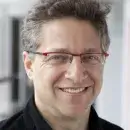
Peter Louis Galison
Professor Peter Louis Galison is the Joseph Pellegrino University Professor in History of Science & Physics at Harvard University. He is also the Director of the Collection of Historical Scientific Instruments at Harvard. Peter Galison received his BA and MA in the History of Science and his PhD in the History of Science of Physics all at Harvard University. After Harvard, Galison taught philosophy, history, and physics for a few years at Stanford University. In 1997, he was named a John D. and Catherine T. MacArthur Foundation Fellow and the winner of the Max Planck Prize in 1999.
Some of Professor Galison's work mainly focuses on the complex interaction between the three principal subcultures of twentieth century physics--experimentation, instrumentation, and theory. The volume on experiment, How Experiments End (University of Chicago Press, 1987), and that on instruments, Image and Logic (University of Chicago Press, 1997), are to be followed by the final volume, "Building, Crashing, Thinking," that is still under construction. Einstein's Clocks, Poincaré's Maps (W.W. Norton, 2003) begins the study of theory by focusing on the ways in which the theory of relativity stood at the crossroads of technology, philosophy, and physics. Image & Logic won the Pfizer Award from the History of Science Society in October 1998.
In addition, Galison has launched several projects examining the powerful cross-currents between science and other fields. His book (with Lorraine Daston), Objectivity (Zone Books, 2007) asks how visual representation shaped the concept of scientific objectivity, and how atlases of scientific images continue, even today, to rework what counts as right depiction. Further work on the boundary between science and other fields includes his co-edited volumes on the relations between science, art and architecture.